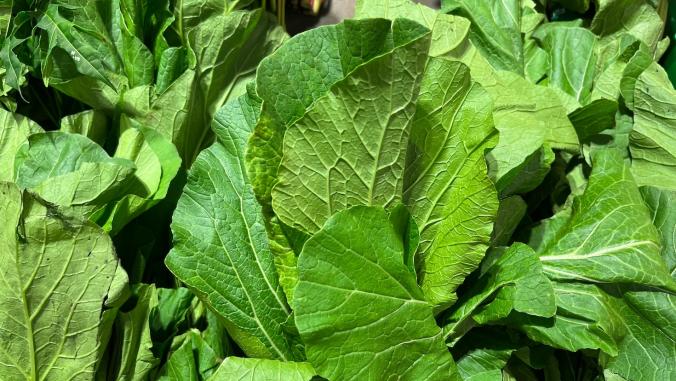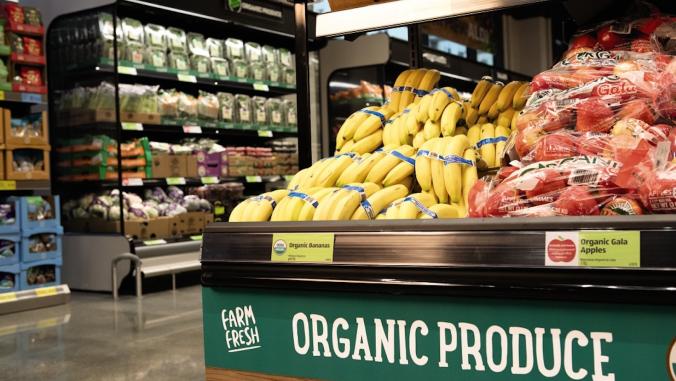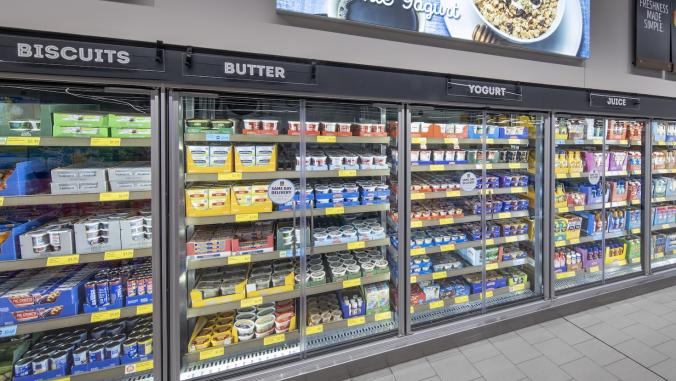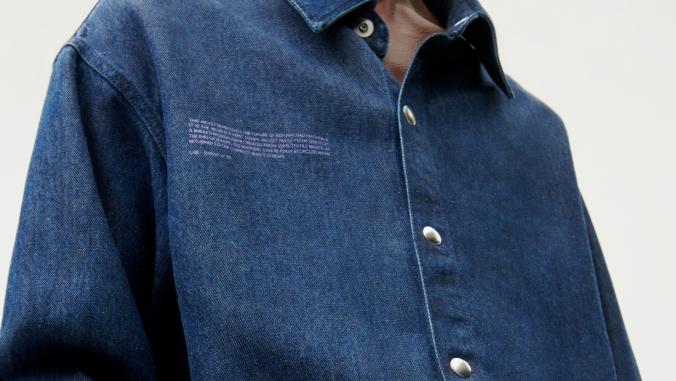In January 2020, Walmart held a Tuna Summit, bringing together key suppliers and stakeholders in its tuna supply chain to discuss how the company could sustainably sourced tuna for all brands in its stores by 2025.
Just six months later, in July 2020, it announced a big step toward that goal. That’s when Walmart announced it was sourcing 100 percent Marine Stewardship Council (MSC) certified sustainable tuna for its private label brand — five years earlier than planned.
The MSC fisheries standard requires that fishing organizations ensure enough fish is left in the sea to reproduce indefinitely, that their catch practices have a minimal environmental impact and that processes be closely managed. As part of its strategy, by 2025, Walmart will require all of its canned light and white tuna suppliers to source from fisheries that are third-party certified as sustainable. Tuna is a $50 billion a year global industry and as a grocer, Walmart has a large role to play in transforming the market.
"We take those supplier relationships extremely seriously," said Mikel Hancock, senior director of strategic initiatives at Walmart. "And none of those decisions are taken lightly. We recognize the importance of our suppliers, and we value their partnership as well. But we have to have a supply chain that’s around long term. We have to do it the right way."
It’s already making progress. By the end of 2020, 35 percent of Walmart’s third-party national brands and private label tuna suppliers met Walmart’s seafood policy requirements certified by MSC and the Fishery Improvements Project (FIP), an initiative helps fisheries work towards sustainability. FIP requires fisheries to complete an MSC pre-assessment, develop an improvement plan, regular reporting and a timeline to completing a MSC certification.
According to Walmart’s 2021 ESG Report, when looking just at Walmart’s U.S. private label, 85 percent was sourced sustainably. Sam’s Club, a Walmart subsidiary, on the other hand, was only at 3 percent.
The COVID-19 pandemic shed a light on supply chain weaknesses that can emerge during a global crisis. Looking into the future, it is clear that climate change will fuel more disruptions and shortages. New partnerships will be key to keeping supply chains robust and intact.
For Walmart, one of the newer partnerships shaping its strategy for a sustainable tuna supply is with Pacific Island Tuna (PIT), a joint venture between the Republic of the Marshall Islands, a small country off the coast of the Philippines that relies heavily on the tuna trade for its national income, and nonprofit The Nature Conservancy (TNC).
A new model for fishing
The venture is helping the Marshall Islands take its supply chain back from the large foreign fisheries that previously rented rights to fish in the country’s tuna-filled oceans. Its model puts the strategy for fishing and developing retail partners — as well as the profits — back into the hands of local people, with an eye towards spawning a more sustainable tuna supply.
"Pacific Islands Tuna will own the tuna from the time it hits the dock in the Marshall Islands, straight through to the time it's delivered to retailers like Walmart," said Mark Zimring, director of the large-scale fisheries program at TNC. "That’s a fundamental reorientation of the supply chain and provides members with really robust visibility into operations, costs and profit centers."
We've seen a lot of these products come to market with these enhanced attributes and ultimately have gotten stuck in a niche or boutique market that haven’t been able to scale.
PIT will supply Walmart with sustainable tuna for a portion of its in-house brand, Great Value. Walmart and PIT would not disclose what percentage or how much tuna the company is supplying to the retailer, but Hancock confirmed it was a significant portion.
"We've seen a lot of these products come to market with these enhanced attributes and ultimately have gotten stuck in a niche or boutique market that haven’t been able to scale," Zimring said. "We made the decision to focus on private label because retailers are relentlessly focused on building their own brands right now — knowing that if it can be competitive and successful in private label that ultimately that creates a lot of opportunities."
PIT has the MSC Chain of Custody Certification and is deemed more sustainable because it relies on 100 percent free-school catch, meaning the organization will use a big net instead of other controversial technologies, such as floating platforms. According to Zimring, the type of fishing used by PIT results in less bycatch of protected animals including dolphins, sharks and turtles. Its nets also catch less baby tuna, which are needed for regeneration of the school.
According to Zimring, PIT will increase the monitoring and control over the tuna fishing by adding more video cameras and human supervisors to monitor the number of fish caught, the amount of fishing done during daylight hours and the amount of bycatch. According to a Marine Resources Assessment Group study, unregulated fishing is not usually done by unlicensed boats trying to skirt the system entirely, but instead 95 percent of the overfishing is done by licensed fleets. According to Zimring, new monitoring tools will help keep that to a minimum. PIT will also avoid the use of transshipment, moving fish from one vessel to another. Instead, it will offload all of its catch dockside, which gives the organization more control and better monitoring over what’s actually caught.
Hatching a new partnership
Switching suppliers is a long, difficult process. Zimring noted that this project with Walmart was years in the making. Hancock spoke about how the partnership worked to create models, came up with the costs of getting the raw goods and figured out what it would take to move away from AB Tuna Holding, a tuna company based in Stockholm, to even identifying packing level efficiencies and ensuring PIT could achieve the volumes Walmart needed.
Walmart is also watching several key performance indicators to ensure the partnership is succeeding on the sustainability side. They include the number of vessels signed up for the safe workplace PIPP Code of Conduct, Illegal Unreported and Unregulated audits, the number of vessels using electronic monitoring, the kilometers of oceans conserved, greenhouse gas emissions and social compliance audits.
But it takes a fishing village plus retailers, plus a nonprofit, plus various verification parties to make lasting change.
"You work with all the stakeholders to focus in on areas that are in need to drive through system change," Hancock said. "That’s what’s taking place here. And that's not always easily done. But we're excited to get it up and running."






